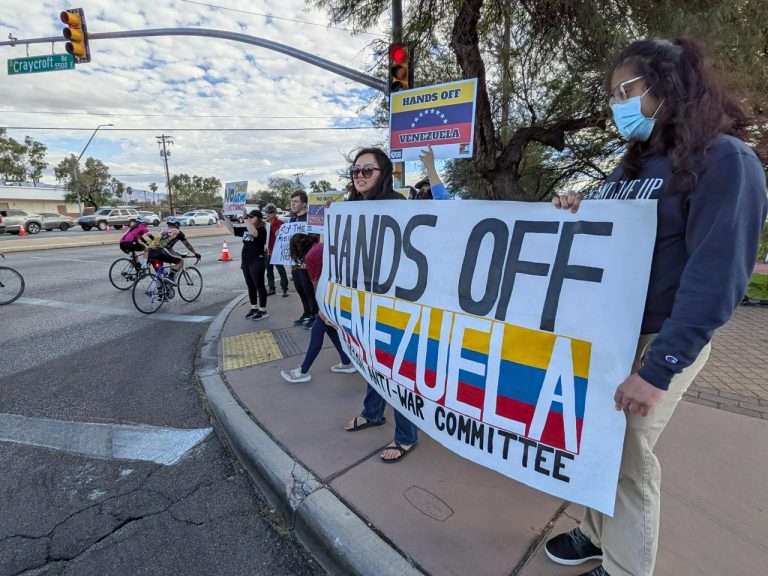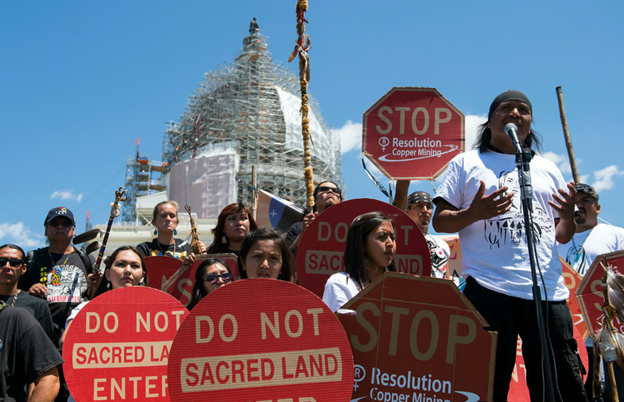Solidarity Rally At Key Air Force Base In War On Venezuela
Tucson, AZ – On November 22, The Tucson Anti War Committee (TAWC) and a host of organizations wanted to let the thousands of bicyclists in the annual El Tour de Tucson know that, as they passed the Air Force base, people with a conscience demand “Hands off Venezuela!”
“With a race of nearly 10,000 and 40% registered from out of state, we saw this as a great opportunity to let as many people know this beautiful landscape is also the HQ for Trump’s war crimes in the Caribbean. People need to know that we can stand up to Trump and stand with Venezuela,” said TAWC organizer Maria Sohn Hasman, addressing the race onlookers.















